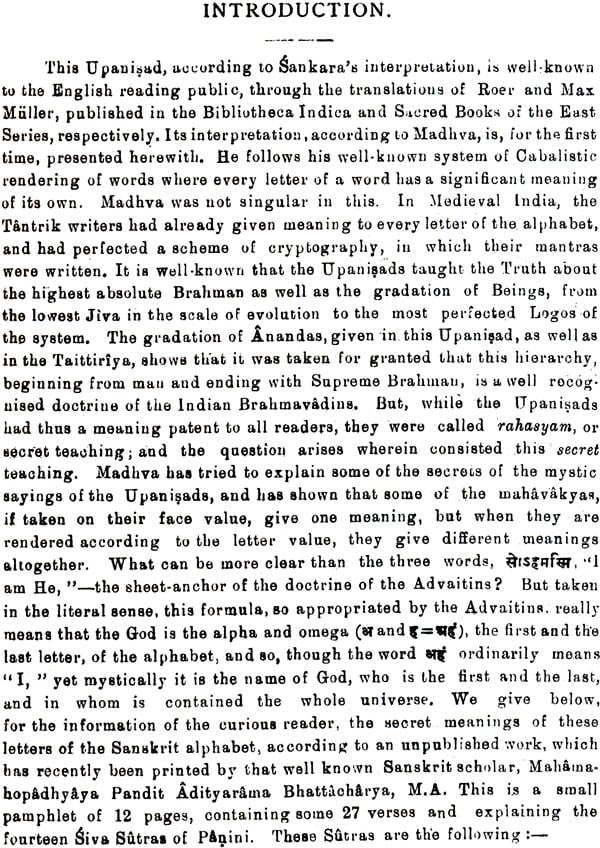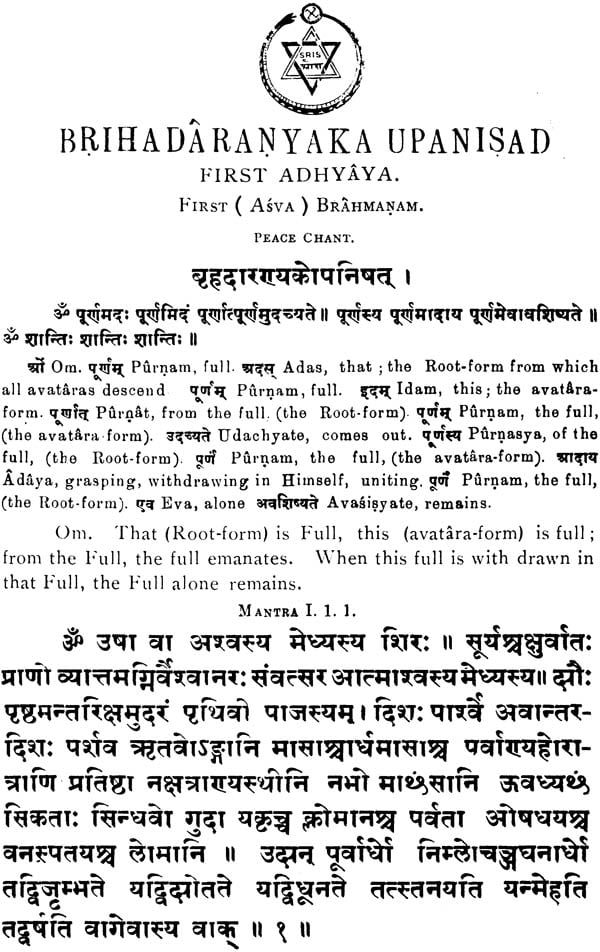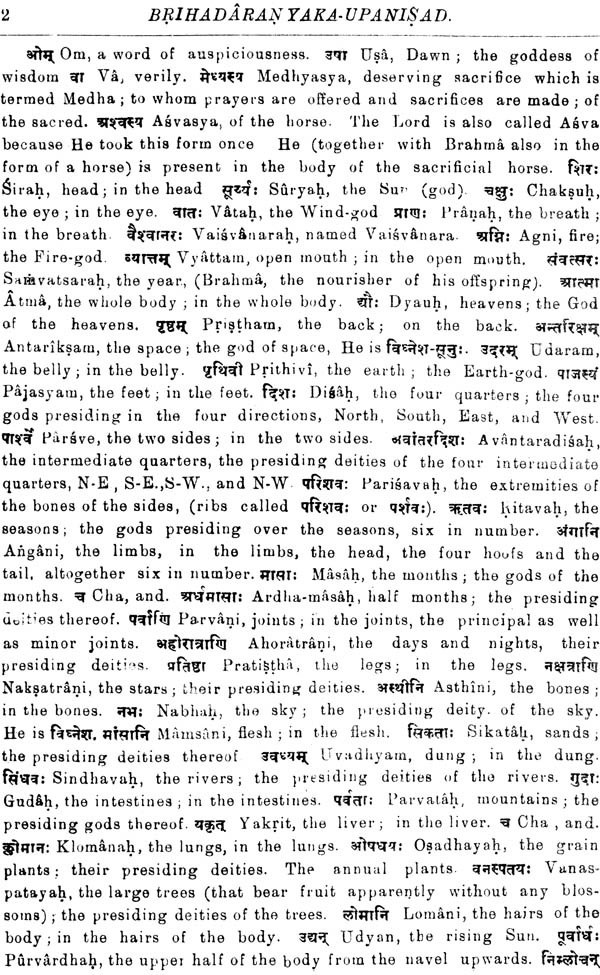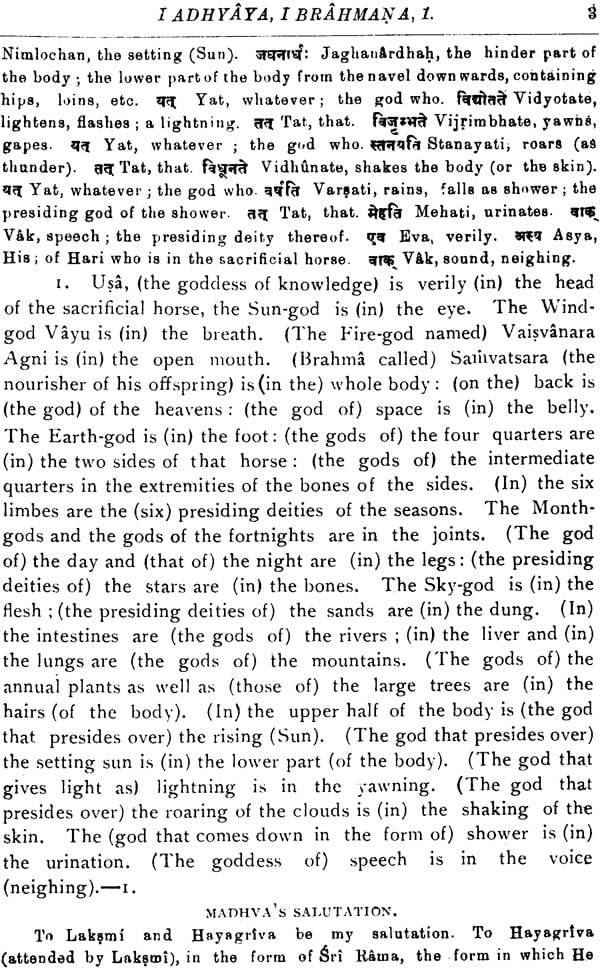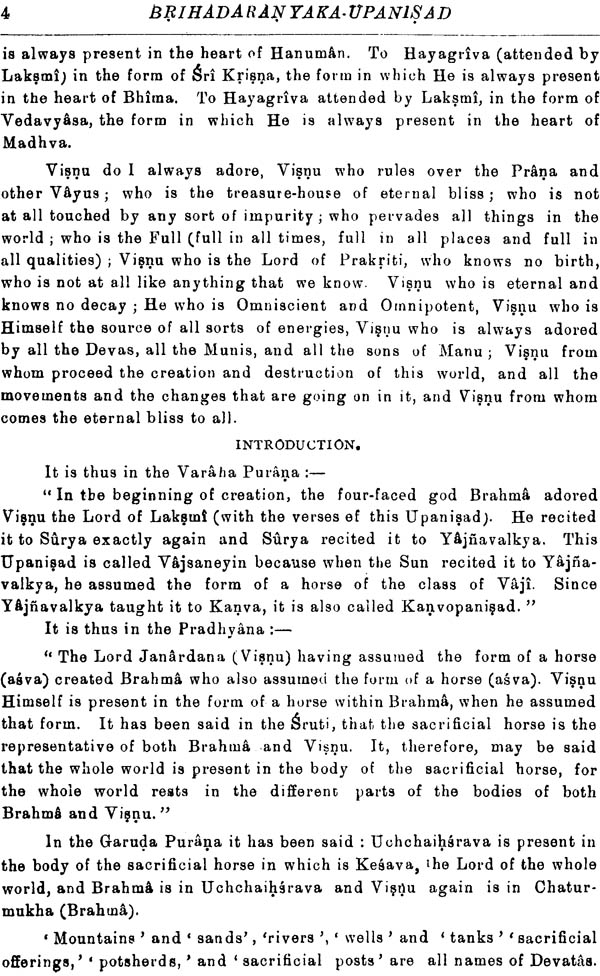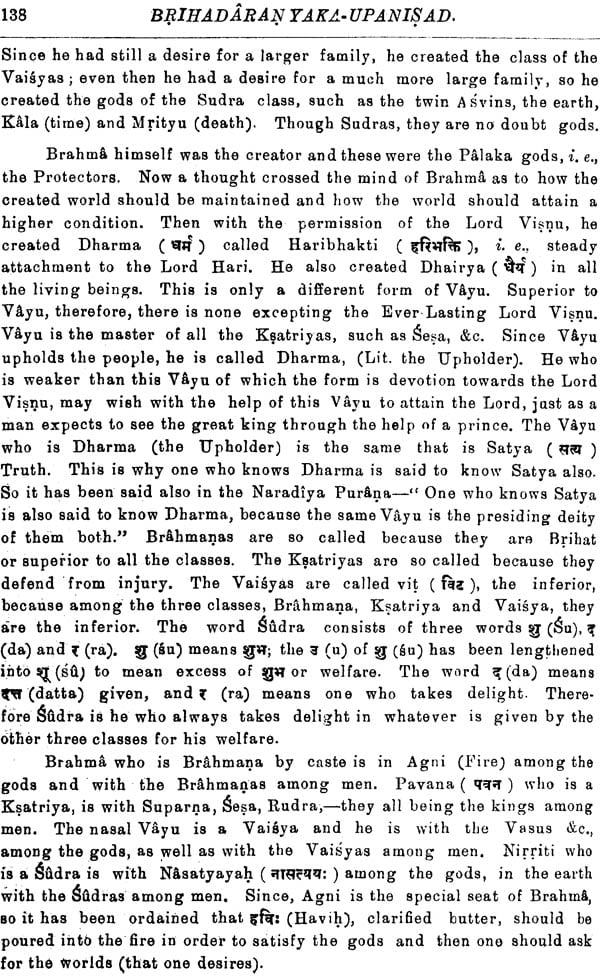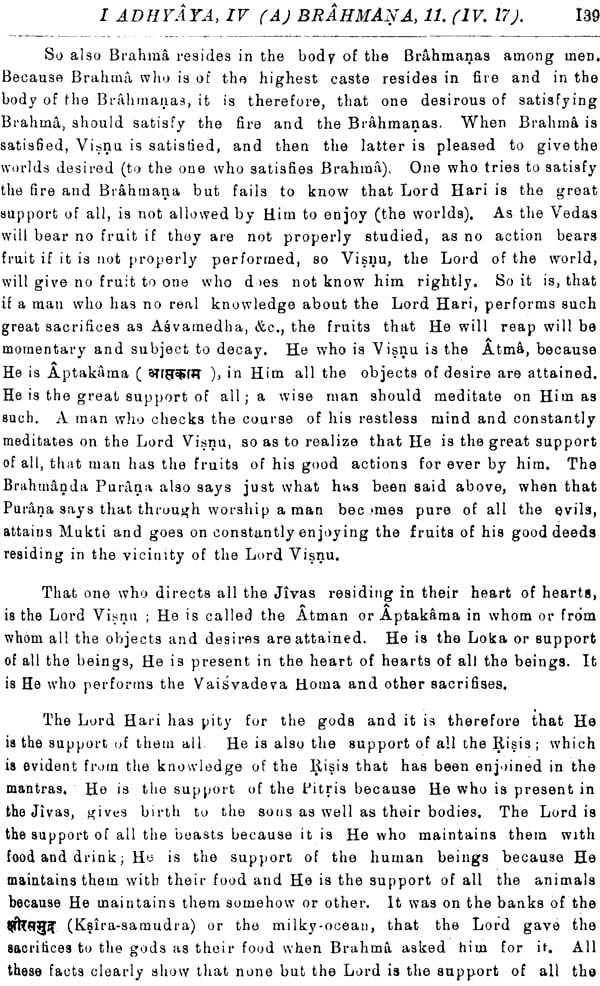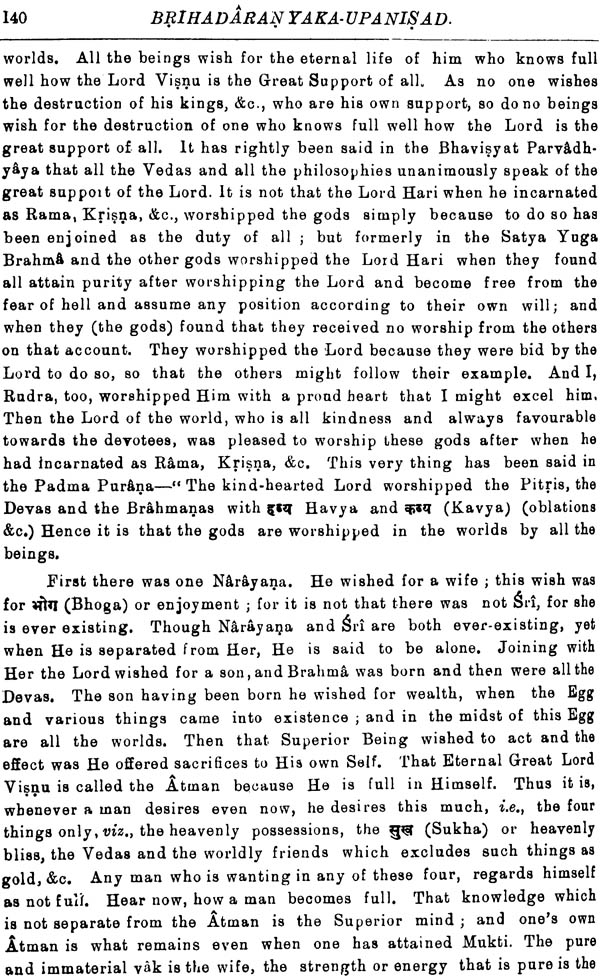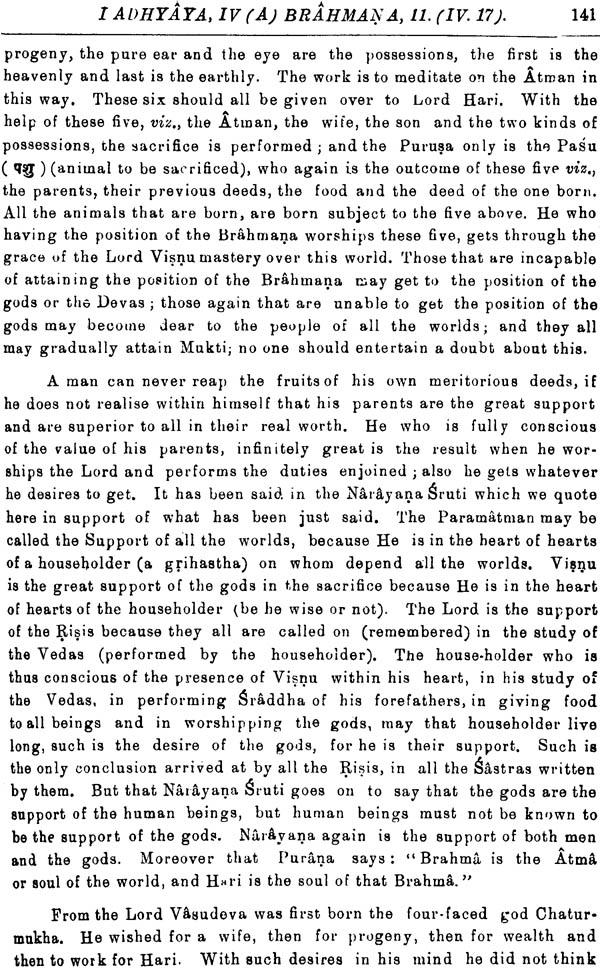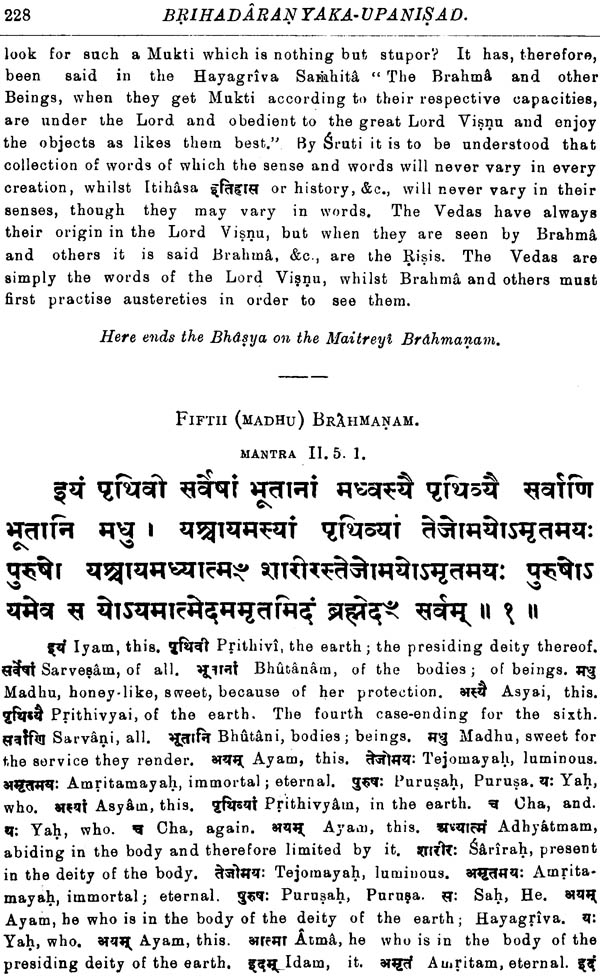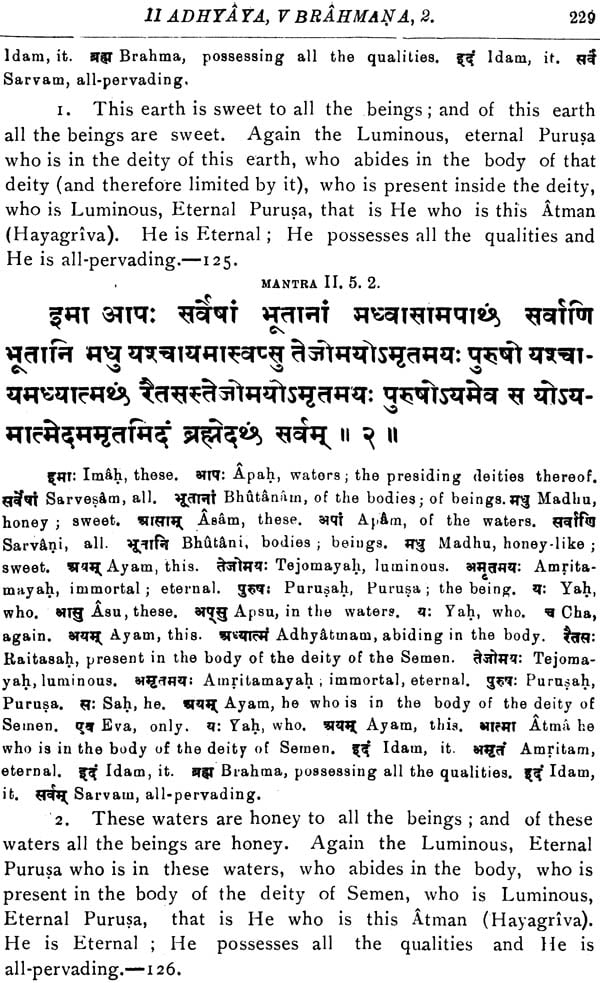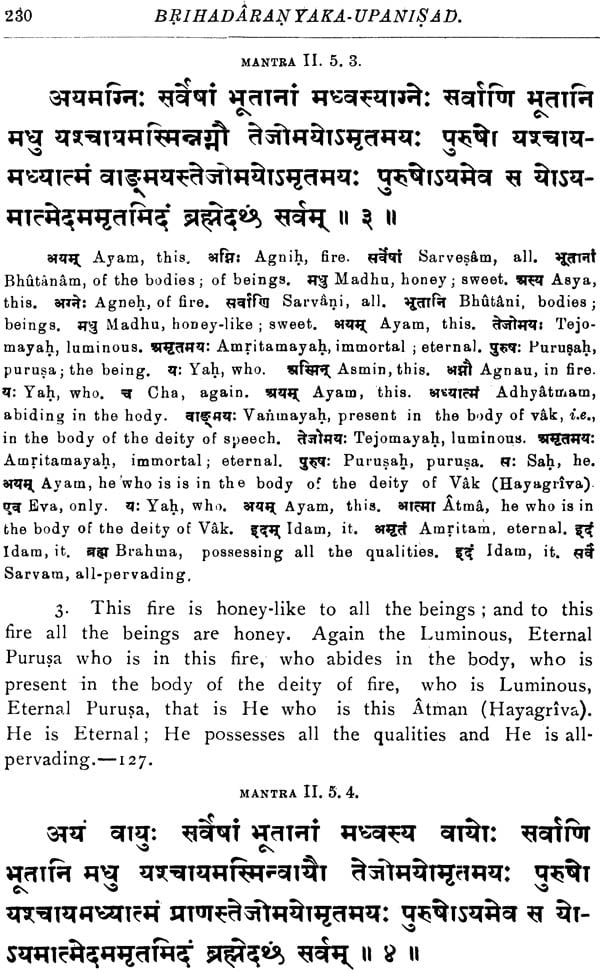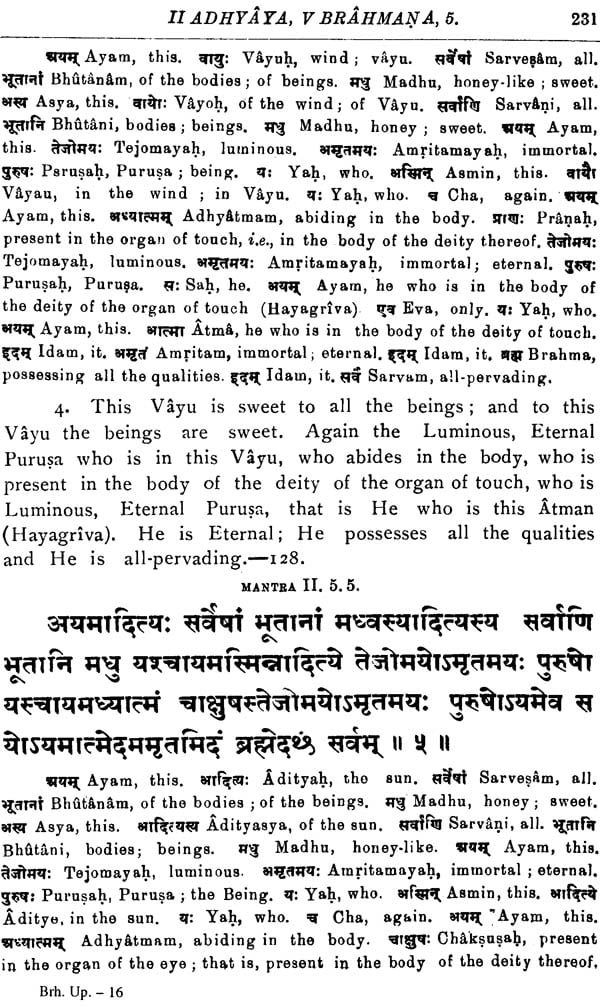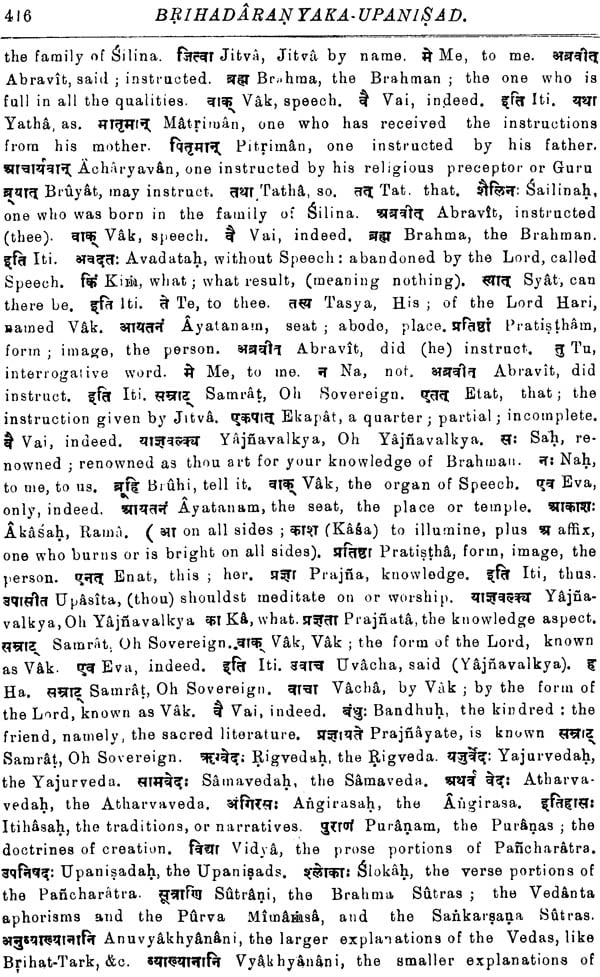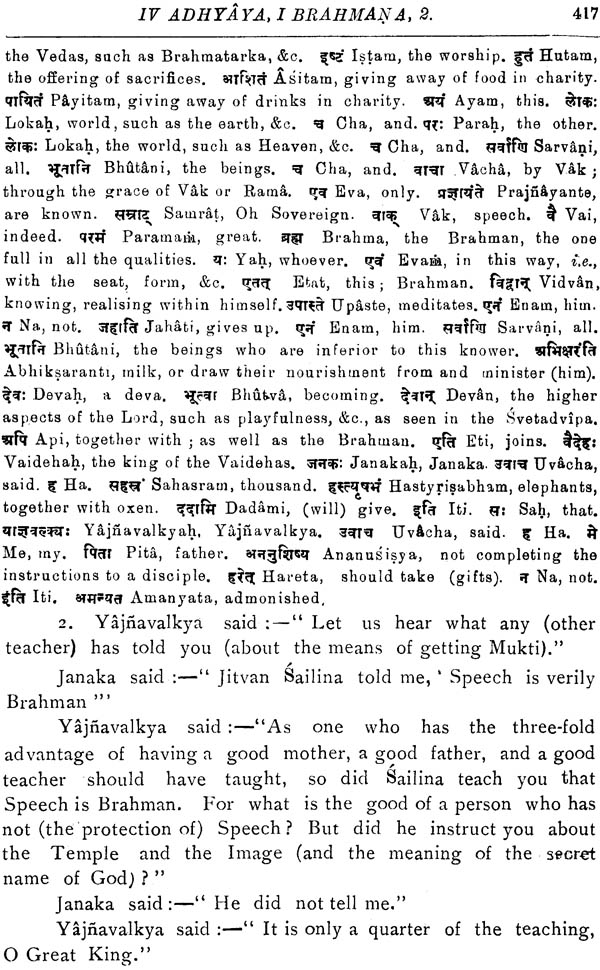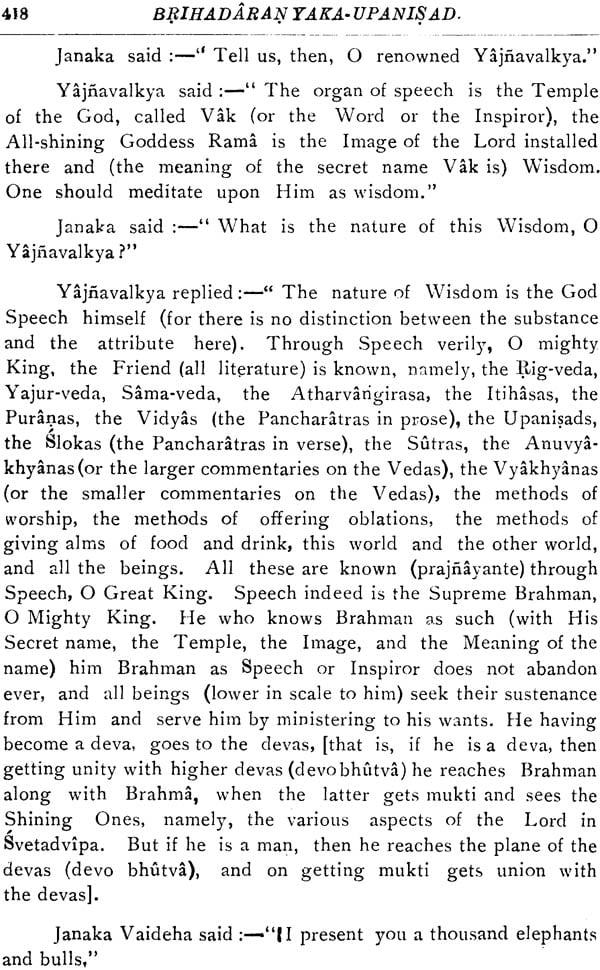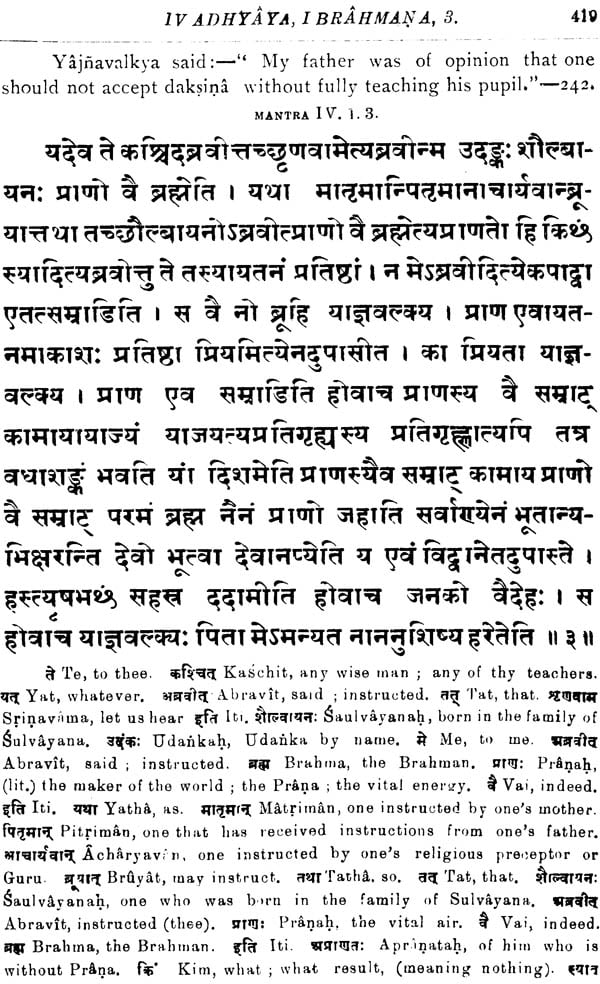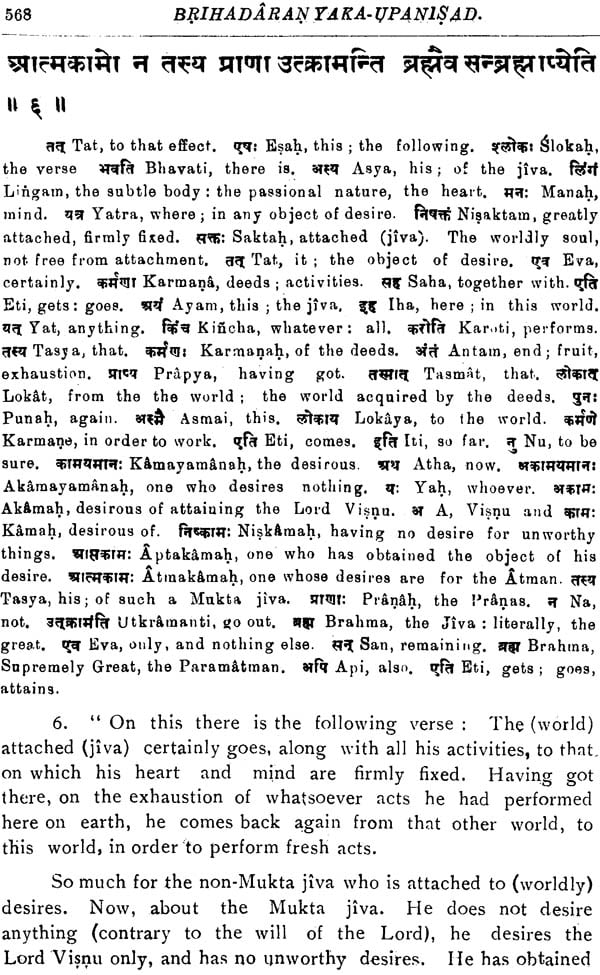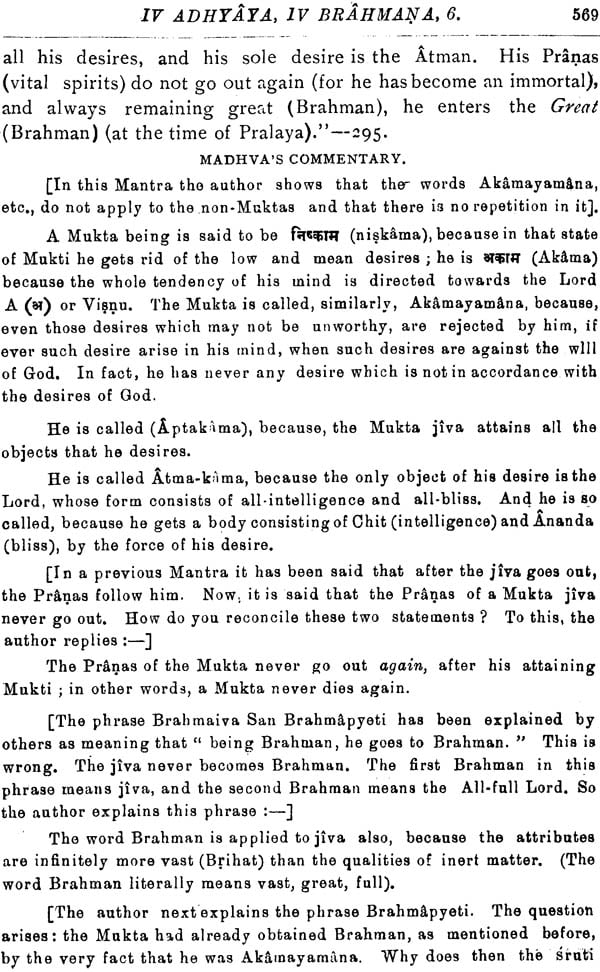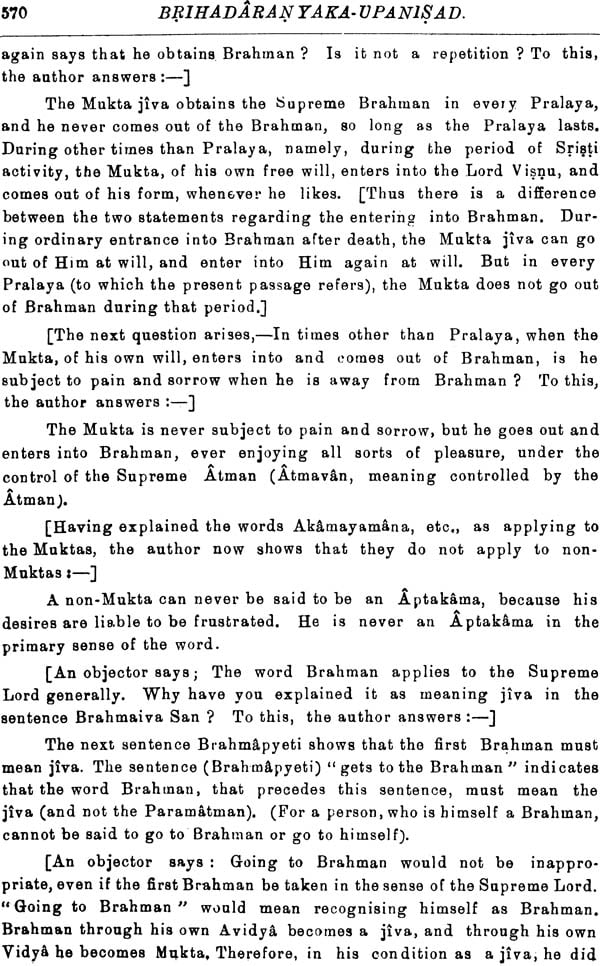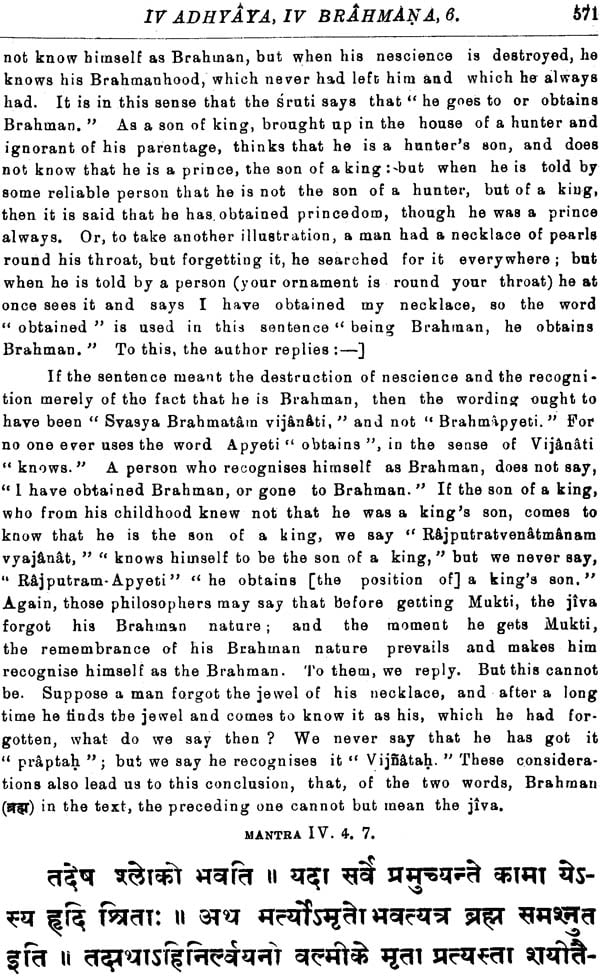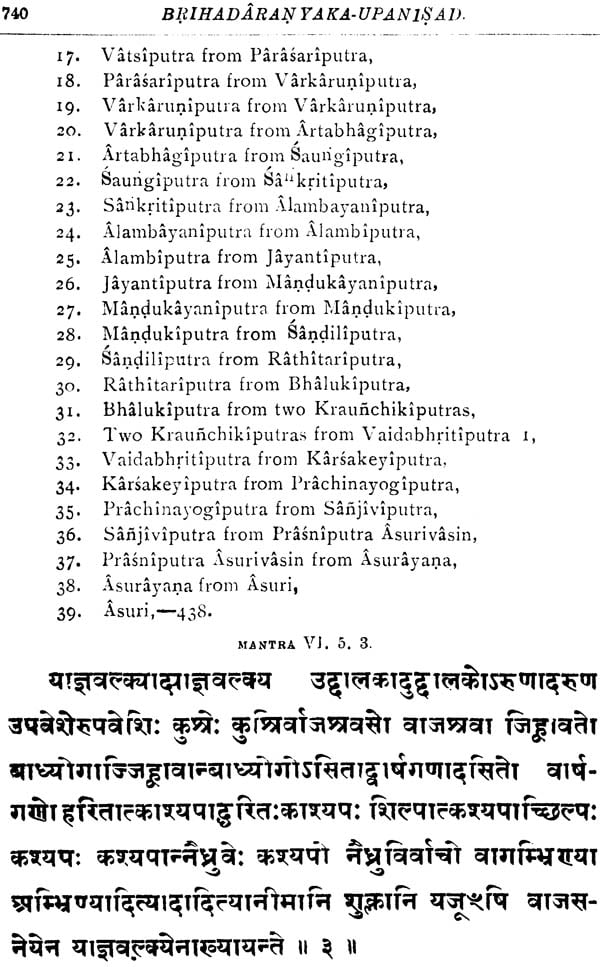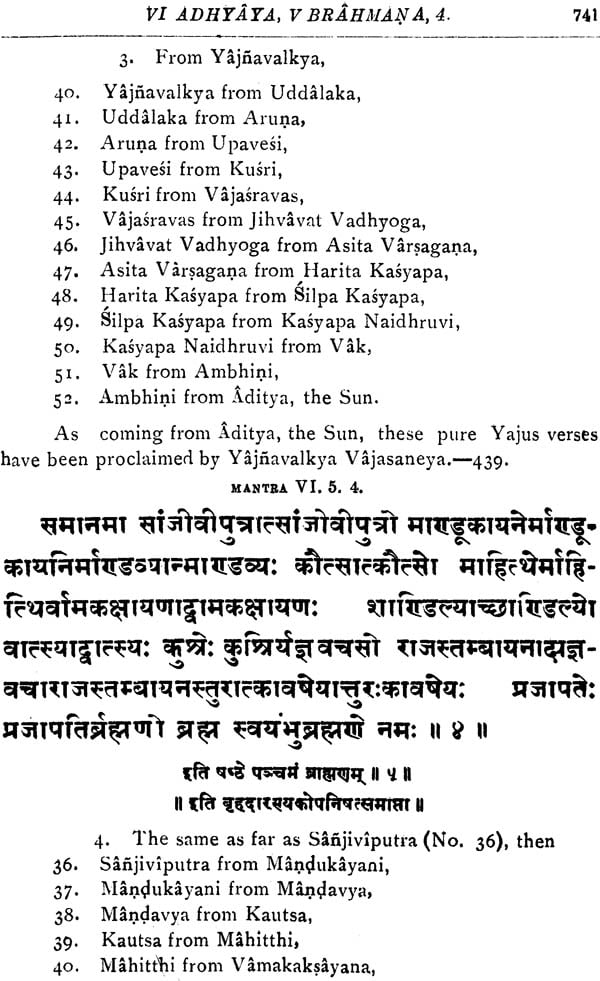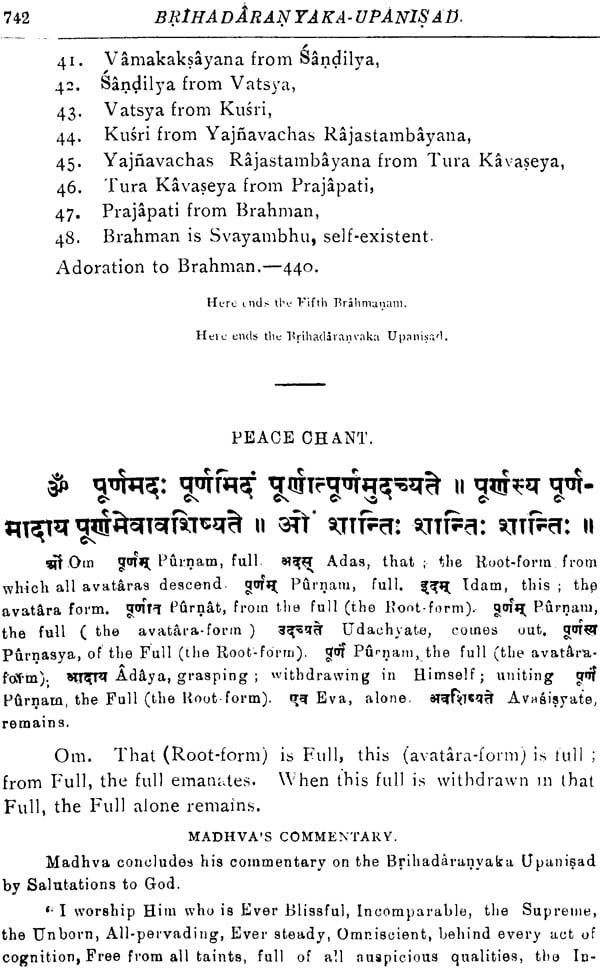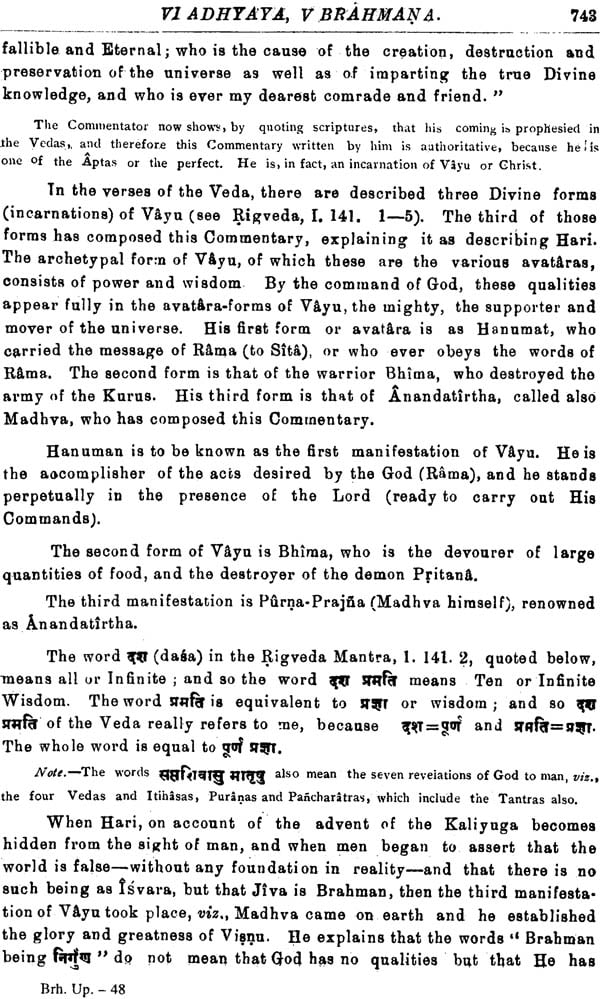| Adhyaya I. | Page. |
| The whole Creation is the Horse of Sacrifice | 1 |
| Creation is a Sacrifice: the secret of the Asva-medha sacrifice | 10 |
| Vayu, the first-begotten of God, is half male and half female: the Elects to Vayuhood | 36 |
| How Brahma and Sarasvati created the Universe | 67 |
| How the whole Creation came out of the Brahman | 79 |
| The seven kinds of Food: the three Worlds, i.e. of Man, the Fathers and the Devas: the spiritual relation of father and son: the worship of Vayu | 142 |
| Vayu is a triplicity of Name, Form and Work | 173 |
| Adhyaya II. | |
| Dialogue of Balaki and Ajatasatru: the condition of the Jiva in sleep: the Vijnanamaya Purusa in the Susumna Nadi: the origin and refuge of all whatever that exists | 177 |
| Vayu, the Infant in the right eye, is supported by Visnu and Rama | 195 |
| The Brahman is both the Murta and the Amurta as well as above and beyond both of them | 202 |
| Dialogue of Maitreyi and Yajnavalkya: the nature of the Atman | 207 |
| The Madhu-Vidya, also called the Hayagriva Brahma-Vidya | 228 |
| The family of the Teachers of the Madhu-Vidya | 247 |
| Adhyaya III. | |
| Janaka's Sacrifice: Dialogue of Asvala and Yajnavalkya: the Worship called Sampat | 253 |
| Dialogue of Artabhaga and Yajnavalkya: the condition of the Jiva at death | 266 |
| Dialogue of Bhujyu and Yajnavalkya: Vayu, the Deliverer | 276 |
| Dialogue of Usasta and Yajnavalkya: the nature of the Brahman | 280 |
| Dialogue of Kahola and Yajnavalkya: the Brahman is the Ruler of the Muktas also | 287 |
| Dialogue of Gargi and Yajnavalkya: the grades of the Muktas | 298 |
| Dialogue of Uddalaka and Yajnavalkya: the Brahman is the Antaryamin (the Inner Controller) | 306 |
| Dialogue of Gargi and Yajnavalkya: the Brahman is its own support: the nature of the Brahman | 329 |
| Dialogue of Sakalya and Yajnavalkya: the Devas, their nature number, nature and interdependence: Vayu is the highest Deva: the Brahman creates, supports and transcends them all | 350 |
| Adhyaya IV. | |
| Dialogue of Janaka and Yajnavalkya: Janaka's six teachers and what they taught: the four parts of the Divine Wisdom: the three Forms of the Atman in the Heart | 409 |
| Dialogue of Janaka and Yajnavalkya: the king of Kings on the Throne of the Heart | 446 |
| Dialogue of Janaka and Yajnavalkya: the Light within the Heart: the Brahman and the Muktas in Creation and Pralaya: the Sunya-vada and the Maya-vada: the different states of consciousness: the order of the Muktas and their Lokas | 453 |
| Dialogue of Janaka and Yajnavalkya: what happens at death to the Muktas and the non-Muktas: the nature of the Atman | 543 |
| Dialogue of Maitreyi and Yajnavalkya: the Joy of Immortality | 599 |
| The family of the Teachers of the Atma-Vidya: a superior caste may learn from an inferior caste | 617 |
| Adhyaya V. | |
| The Brahman as seen by Balarama | 623 |
| Humility, Charity and Mercy taught to the Devas, Men and Asuras respectively | 626 |
| Hridaya is a secret name of the Brahman | 629 |
| Vasudeva, the first avatara of the Brahman | 631 |
| The secret names of Vasudeva | 635 |
| The Brahman is the All-knower, the All-light and the All-good | 641 |
| The Brahman is the All-revealer | 643 |
| The Worship of Sarasvati | 644 |
| The Brahman as Agni Vaisvanara | 645 |
| Vayu, the Conductor of the departing Mukta | 646 |
| Meditation for ailing persons | 650 |
| Meditation on Brahma and Vayu | 653 |
| The secret names of Vayu | 657 |
| The Gayatri and its varieties with the Pranava | 666 |
| Aham and Asmi are the secret names of the Brahman: the immortality of Vayu | 674 |
| Adhyaya VI. | |
| Vayu is the Best and the Oldest of all the Devas | 681 |
| The secret of the Pancha-Agni-Vidya | 695 |
| The Pancha-Agni-Vidya is the Brahma-Vidya | 714 |
| Eugenics: procreation of pious children | 732 |
| The family of the Teachers of the Brahma-Vidya | 738 |
| Madhva's Conclusion: Madhva's claim to be the third avatara of Vayu rests on the Rig Veda | 742 |

